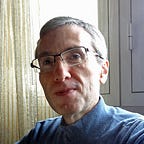Counting
If numbers are the bricks on which the building of mathematics is built, counting is the fundamental tool that made that construction possible
Counting means enumerating the elements of a finite set of objects, such as the marbles in a jar, assigning each item a different number, that is, a unique label. But counting can also be an operation utterly abstract from the relationship with physical objects, performed on numbers present only in the mind of those who are counting.
The ability to count has evolved in humans for at least 40,000 years, as evidenced by tallies and notches found on bones and bone fragments discovered at a prehistoric site in South Africa. Yet, despite such an ancient origin, counting requires sophisticated mental skills.
Even the simplest form of counting implies that one possesses the concept of the series of numbers as an ordered sequence, starting from 1 and continuing by fixed increments of 1 unit at a time so that every number following 1 has precisely one previous number and one next number.
In this sense, counting is equivalent to a continuous series of additions, in which each new element counted updates the result of the addition.
